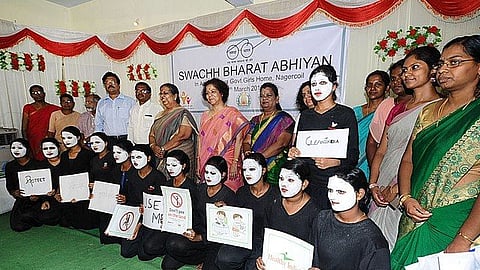Toilets provide women and young girls with privacy and safety, which is especially important. The risk of harassment while defecating in the open during dawn and dusk can be reduced with access to toilets. Apart from managing their menstrual hygiene and personal health, toilets help uplift the health, safety and dignity of women and young girls.
The convenience of having a nearby latrine regardless of day or night, rain or sun cannot be stressed. Accessible toilets are all the more important for the aged and differently abled.
According to the World Bank, inadequate sanitation cost India nearly 6% of its GDP in 2006. Hence, it is clear that ending open defecation is important not just for communities but also for the socio-economic progress of the nation. The goal of the Swacch Bharat Abhiyan is to create a demand for toilets and wastewater management to end open defecation, which is still considered "normal" in many areas.
Impact of installing toilets under Swacch Bharath Abhiyan
In the last seven years, since the launch of SBA, India has become open defecation free and we are nearing achieving SDG 6.2 which aims for adequate and equitable sanitation access for all, especially for women and girls.
Over 100 million rural homes and 500 million people now have access to toilets thanks to SBA. As per a UNICEF report of 2018, households in ODF villages saved about 50,000 INR a year. Other benefits include fewer illnesses and time saved waiting for treatment or travelling.


